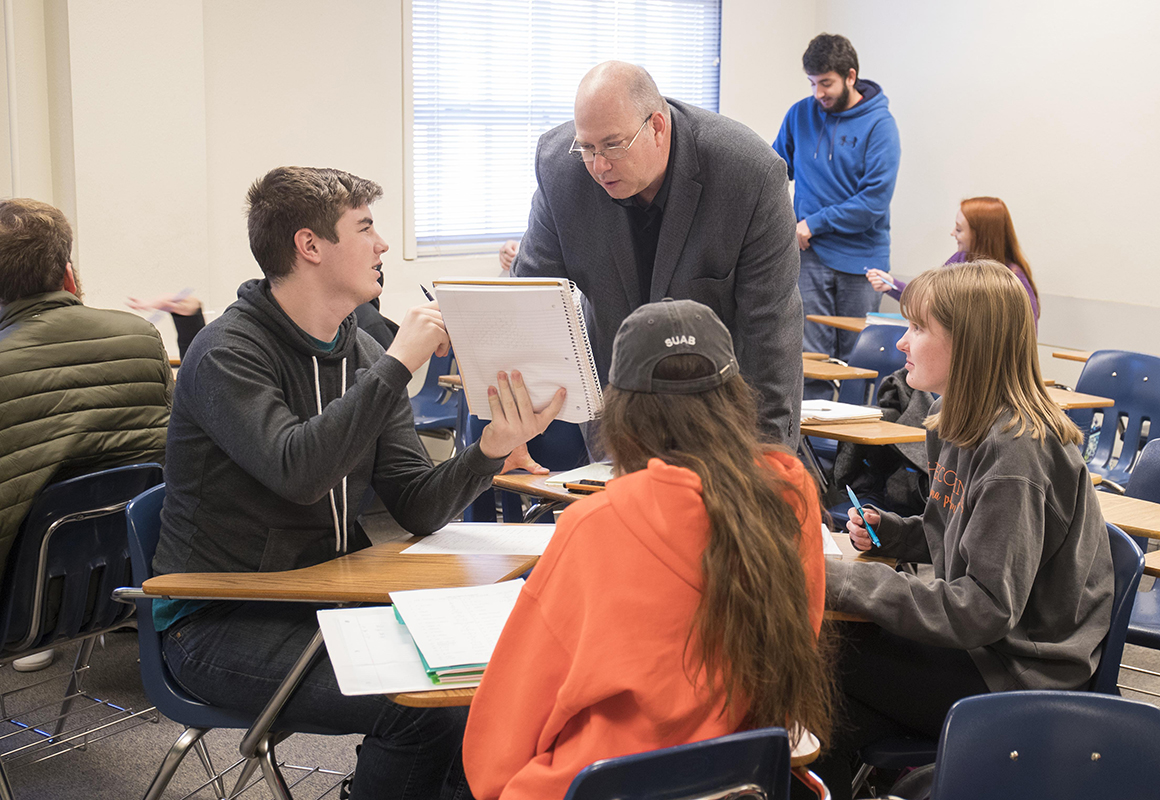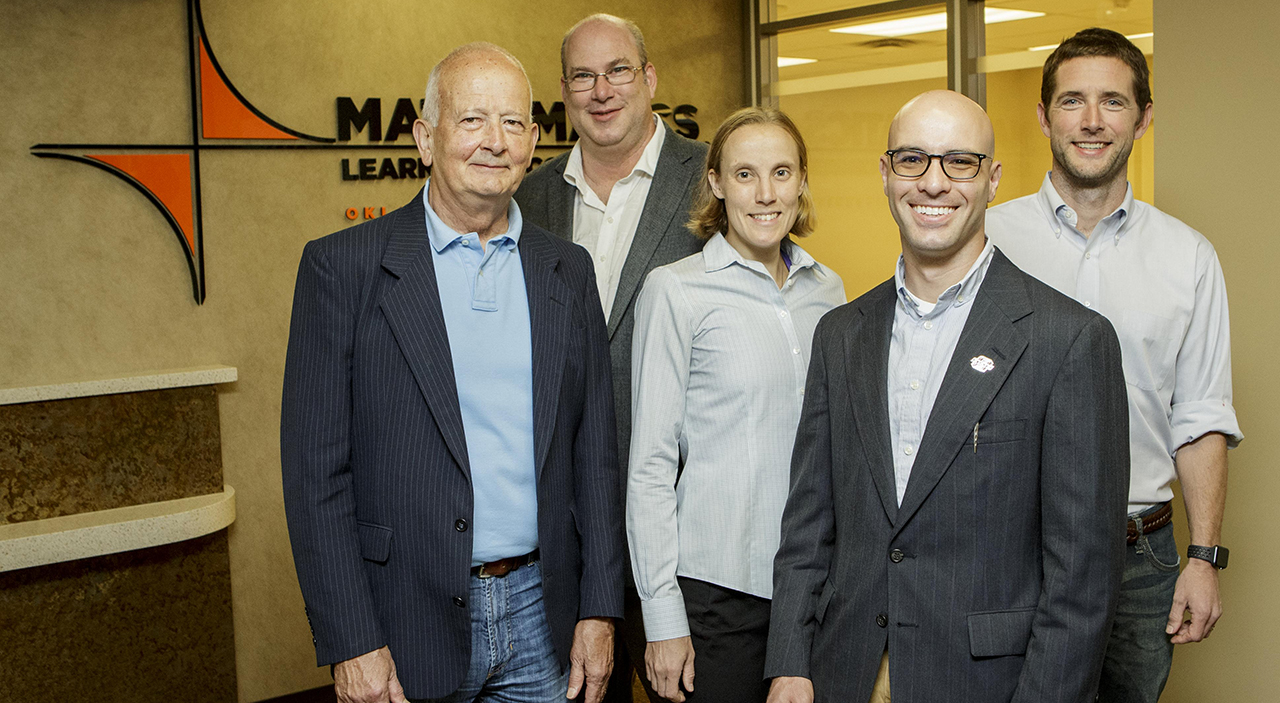For students who struggle in math, it doesn’t matter which of the 27 public institutions governed by the Oklahoma State Regents for Higher Education they attend. With the help of a team of mathematicians from Oklahoma State University, all of the colleges are working together to improve student success in entry-level math courses, and the pilot results have been astounding.
Dr. William Jaco, Regents Professor and Grace B. Kerr chair; Dr. Michael Oehrtman, Noble Professor of Mathematics; and a team of OSU faculty members including Dr. Allison Dorko, Dr. John Paul Cook and Dr. Michael Tallman submitted a proposal in December that won a $3 million grant from the National Science Foundation’s Division of Undergraduate Education last summer. For the next five years, the Mathematical Inquiry Project will support teams of mathematicians to improve student success in entry-level college math classes across Oklahoma. Their work will be disseminated statewide through workshops and mentoring programs.
 Jaco co-chaired a statewide working group that focused on enrolling students in math classes most relevant to their degree path. Committee members believed that students would succeed at higher rates if they saw the class as more meaningful to their own academic interests. Oehrtman served as co-chair of a working group on co-requisite instruction, which places students who need developmental mathematics in credit-bearing courses with additional classes and support built in.
Jaco co-chaired a statewide working group that focused on enrolling students in math classes most relevant to their degree path. Committee members believed that students would succeed at higher rates if they saw the class as more meaningful to their own academic interests. Oehrtman served as co-chair of a working group on co-requisite instruction, which places students who need developmental mathematics in credit-bearing courses with additional classes and support built in.
Jaco offered examples of the initiative’s success from math pathways and co-requisite instruction at Oklahoma State.
“If you have a student who comes to OSU to take college algebra and requires remediation or developmental math, fewer than 20 percent would have earned college credit in two years,” he said. “Now, if they enroll in the co-requisite course, roughly 70 percent are earning college credit in one semester. They’re taking the same tests as the other students, and they’re succeeding at approximately the same rates.”
Oehrtman agreed.
“Across all semesters we have done this, on average, these students do just as well as the students who enroll fully prepared,” he said. “It’s amazing.”
The Department of Mathematics looked at the data on student success in college algebra for three years before the co-requisite courses were offered and for three years after the program began.
“Essentially the same number of students took the courses during both of those three-year periods, but in the second three-year period approximately 1,800 more students received college credit for the course in one semester,” Jaco said. “It hit me how many kids we were leaving behind. This is wonderful what Oklahoma is doing.”
The benefits will extend beyond the classroom and improve a student’s ability to transfer to a different university and continue to find success in courses requiring math prerequisites.
“We are trying to make these entry-level courses seamlessly transfer between the different institutions so we can help and support each other,” Jaco said. “Oklahoma is in a good position because all of the public institutions are set up under one Regents system. It’s a phenomenal opportunity to accomplish something statewide.”

